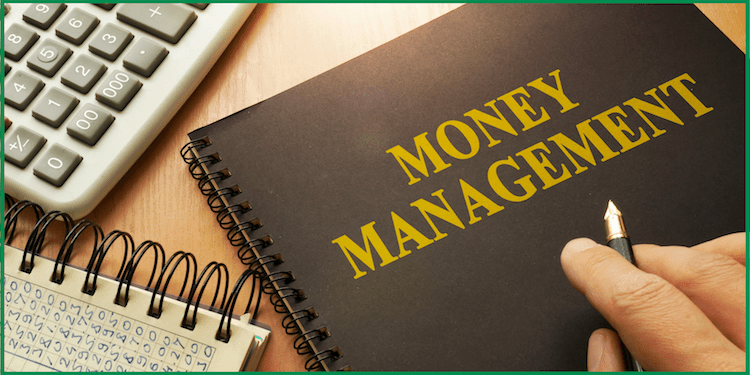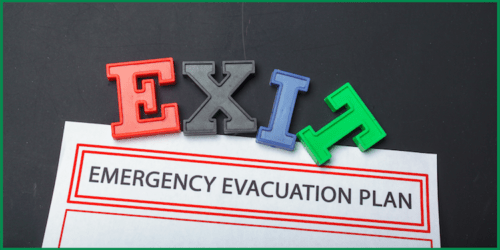The term personal finance and how it works has different meanings for different people.
Some think managing your finances means generating monthly income, budgeting expenses, and saving money to meet your monthly needs.
On the other hand, some people believe that working your money means keeping a few coins in their wallets and carrying cash when shopping.
But what is the true meaning of personal finance management?
This article will dig deep into personal finance management, how it works, the best finance practices, and much more.
What is personal finance?
Before we dive into managing your financial situation, we should understand what personal finance is and how it works.
Personal finance refers to managing your money by saving and investing. It covers budgeting, banking, borrowing, credit, retirement planning, insurance, and individual property care.
In simplicity, finance management is about being responsible for now and future money – whether a simple earning or an epic return on investment.
Personal finance is also about meeting your financial goals, whether your daily needs, family living expenses, child’s education, retirement plans, emergency funds, etc.
What is personal finance management?
Personal finance management entails gaining knowledge of your financial condition to maximize your assets for your day-to-day and future needs. So how does personal finance management work?
An overview of your financial situation is the most critical step in personal finance management. Once you know where you are, you can plan and identify potential risks.
For example, if your daily expenses exceed your income, you risk going bankrupt or getting into debt. By knowing this, you can make the most out of your income instead of spending it on shopping.
How to practice good personal finance management habits?
Your financial well-being starts with you! You must be aware of your spending habits regardless of your financial situation.
If you can’t manage your daily expenses by yourself, here are six (6) great tips to help you practice good personal finance management habits:
1. Make a budget
You can’t master your finances if you don’t know how much money you earn and where you spend it.
So the first step to managing your finances is making a budget.
It’s simple: list down all of your income and expenses.
But remember, creating a budget is easy, but sticking to it is not. So make sure to stick with it.
2. Spend less than what you earn
Isn’t it quite obvious? If you spend more than what you earn, that will lead to bankruptcy or even debt. Spend based on necessity and not want.
3. Create an emergency fund
Emergencies can show up at any point in our lives.
It would help to stay prepared for a sudden debt or a medical emergency.
That’s why you need to create an emergency fund to cover your back if there is an unforeseen expense.
And if an emergency doesn’t show up, your finances stay intact!
4. Set financial goals/plans
Financial goals or objectives include saving for retirement, a child’s education, buying a home, or vacation. Some plans are long-term, while some are short-term.
5. Keep tweaking your budget
Listing expenses helps prioritize needs against wants.
Double-check your lists to see if there’s a way to save them.
Make changes based on your lifestyle or spending habits. For example, a married individual’s wants and needs differ from a bachelor’s or a spinster’s. Make sure to adjust as needed.
6. Pay off your debts ASAP!
Debts are the biggest hurdle of any personal finance management.
If you have any debts, don’t leave them hanging. Start paying them off ASAP!
You can tweak your budget and cut off a few things, like subscriptions and luxury expenses.
You can even sell items to raise cash for your debt repayments.
The faster you repay your debts, the more time you have to save and enjoy life.
Benefits of practicing an excellent personal finance management
If you don’t know how to manage your financial situation, the risk of money issues will be high.
So practicing good personal finance management is the only way to go.
Once you know how to manage your finances, making wise decisions regarding buying items and handling emergencies will be easy.
Here are some benefits of practicing good personal finance management:
1. Helps to identify money problems early
By managing your finances, you will know if any possible issues might happen in the future.
For example, if you don’t know how to manage your money well, you might have no savings when retirement comes.
If this happens, you must work longer or spend less during retirement.
2. Helps you avoid making money mistakes
Personal finance management allows you to learn the best practices for your situation to avoid making money mistakes.
Proper personal finance management makes you less likely to fall into debt traps or have no savings.
3. Helps you identify your current financial situation
To make the right financial decisions, you must gain an overview of your current situation, i.e., knowing how much money you have in your cash flow and property and how much debt you owe.
Making consistent decisions won’t be easy if you don’t know where you stand.
4. Helps you plan ahead
Once you know your current financial situation, you can plan your future expenses.
For example, you can set a retirement budget or save enough funds for your child’s education. This way, you will know what to expect and how to handle it accordingly.
5. Peace of mind
Personal finance management helps you get an overview of your situation.
With this knowledge, you can rest better, knowing you are ready for financial emergencies.
The more awareness you have regarding your financial situation, the easier the world will be.
The consequence of not preparing good personal finance management
As you can tell, not having good personal finance management can be a problem.
Without it, you will not know your financial situation and where you stand.
This unknowingness might lead to bad decisions and even debt traps. If this happens, you may struggle with money issues for years.
Here are a few consequences of not having good personal finance management:
- You may fall into debt traps
- You may struggle with cash flow problems
- You may face money issues during retirement
- You may end up with a constantly shrinking bank account
- You may face failure in savings goals
Bottomline
In short, having proper personal finance management is very important.
It will help you avoid making money mistakes and falling into debt traps.
You can plan and know what to expect with sound personal finance management.
You will rest better at night without worrying too much about money issues.
Personal finance management will help you prepare for retirement and meet your savings goals.
Do you enjoy this reading? Kindly share with family, friends, and colleagues. Thanks 🙂



